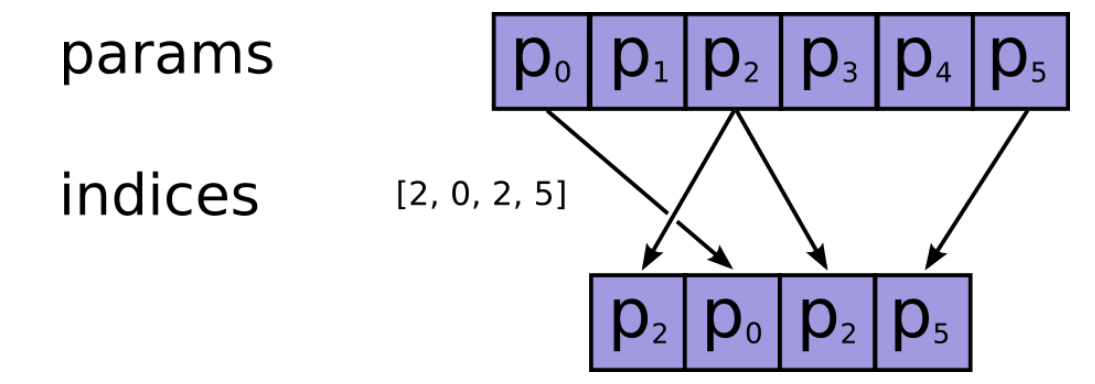# https://www.tensorflow.org/api_guides/python/array_ops
import tensorflow as tf
import numpy as np
import pprint
tf.set_random_seed(777) # for reproducibility
pp = pprint.PrettyPrinter(indent=4)
sess = tf.InteractiveSession()
t = tf.constant([1,2,3,4])
print(tf.shape(t).eval())
print(t.eval())
>> [4]
>> [1 2 3 4]
t = tf.constant([[1,2,3,4]])
print(tf.shape(t).eval())
print(t.eval())
>> [1 4]
>> [[1 2 3 4]]
x = [1, 4]
y = [2, 5]
z = [3, 6]
# Pack along first dim.
tarr = tf.stack([x, y, z],0).eval()
tarr
>> array([[1, 4],
[2, 5],
[3, 6]], dtype=int32)
tarr = tf.gather(tarr,[2,0])
# tf.shape(tarr).eval()
tarr.eval()
>> array([[3, 6],
[1, 4]], dtype=int32)
t = np.array([[[0, 1, 2], [3, 4, 5]], [[6, 7, 8], [9, 10, 11]]])
pp.pprint(t.shape)
pp.pprint(t)
>> (2, 2, 3)
array([[[ 0, 1, 2],
[ 3, 4, 5]],
[[ 6, 7, 8],
[ 9, 10, 11]]])
t1 = tf.transpose(t, [2, 1,0])
pp.pprint(sess.run(t1).shape)
pp.pprint(sess.run(t1))
>> (3, 2, 2)
array([[[ 0, 6],
[ 3, 9]],
[[ 1, 7],
[ 4, 10]],
[[ 2, 8],
[ 5, 11]]])
t1.get_shape()[0]
>> Dimension(3)
last = tf.gather(t1,int(t1.get_shape()[0])-1,name="test_output")
last
>> <tf.Tensor 'test_output:0' shape=(2, 2) dtype=int64>
pp.pprint(sess.run(last).shape)
pp.pprint(sess.run(last))
>> (2, 2)
array([[ 2, 8],
[ 5, 11]])
